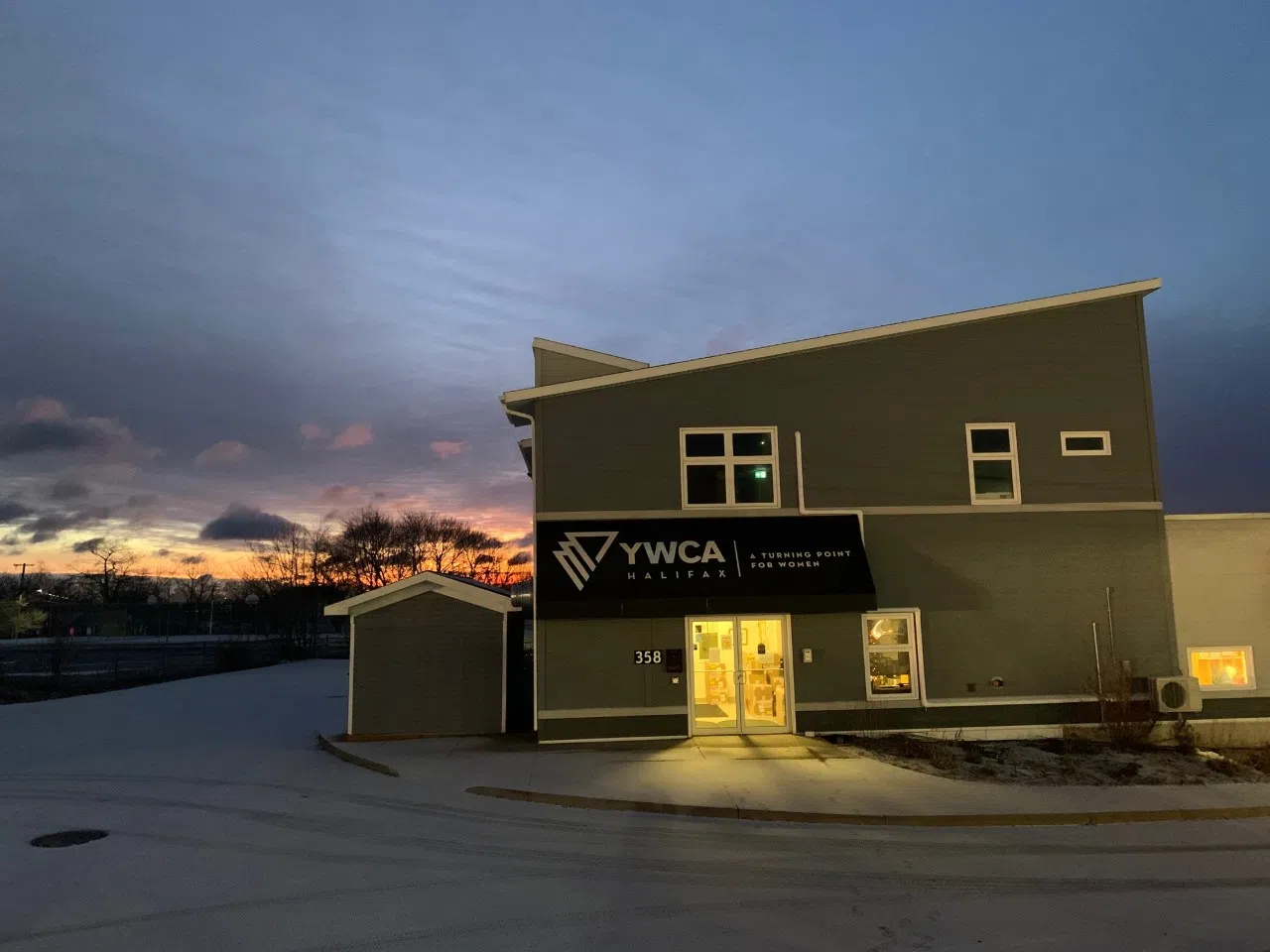A local multi-service organization sees more than 200 survivors of intimate partner violence, every year.
That is according to Ashley Tiller, who oversees frontline gender-based violence programs and service as the violence to resilience manager at the YWCA Halifax.

The staff at the YWCA Halifax Photo: YWCA
Tiller tells our newsroom victims they see are usually looking to a leave a domestic violence situation or have experienced it throughout their lifetime.
She says it is in the lives and experience of everyone who uses their programs.
“We see it show up in the moms that drop off their children at the childcare centres. We see it show up in disclosures within our employment programs. We see it show up within all of our housing programs. We’re noting that gender specific violence is quite literally showing up everywhere, very often.”
This is why, she says, the fact that intimate partner violence is one step closer to being declared an epidemic in our province is a “truly huge milestone” and recognizes the “magnitude” of the response needed.
The NDP tabled the bill last week in the legislature and it passed with all party support making it one step closer to becoming law.
What will this mean?
If intimate partner violence becomes legally an epidemic, Tiller says one thing that would make a big difference to the YWCA, is funding.
She says they have various programs including home childcare, employment programs, housing, among many others.

Photo: YWCA
The December 6th Fund is a financial support program.
Tiller says it’s for victims leaving their situation to help with tangible needs, social support, resource navigation and safety planning elements.
“One thing that we see time and time again is the need for emergency financial supports to help facilitate entrance into housing. We support folks with damage deposits, first-time rent payment, various different forms of financial support through our emergency financial streams and an investment that would allow us to support community in a very meaningful way.”
Tiller adds, they do receive a generous funding donation from the Nova Scotia Status of Women office.
However, a deeper investment from the province would expand how much they are able to help and get survivors into housing.
Housing a huge barrier
A massive barrier in the community, Tiller tells us, is the option and opportunity for housing.
This includes beds, transition and safe housing, which is usually quite limited she says, and often needs dual income to even be accessible or affordable.
She says housing is one of the “core pieces” that needs to be strengthened in our province to best support survivors.
Feeling hope
Tiller says from the victims she has talked to, there’s a lot of hope in how this will translate if domestic violence is declared an epidemic.
“There’s often times a lot of wrongfully placed shame and stigma for folks lived experiences of violence. Saying that it is an epidemic, and is so widely pervasive, helps folks feel less alone and really seen and held in the context of what they’re experiencing.”
Tiller adds, she is hopeful the mass casualty recommendation on intimate partner violence will be implemented, but most of all, receiving multi-sector support.










